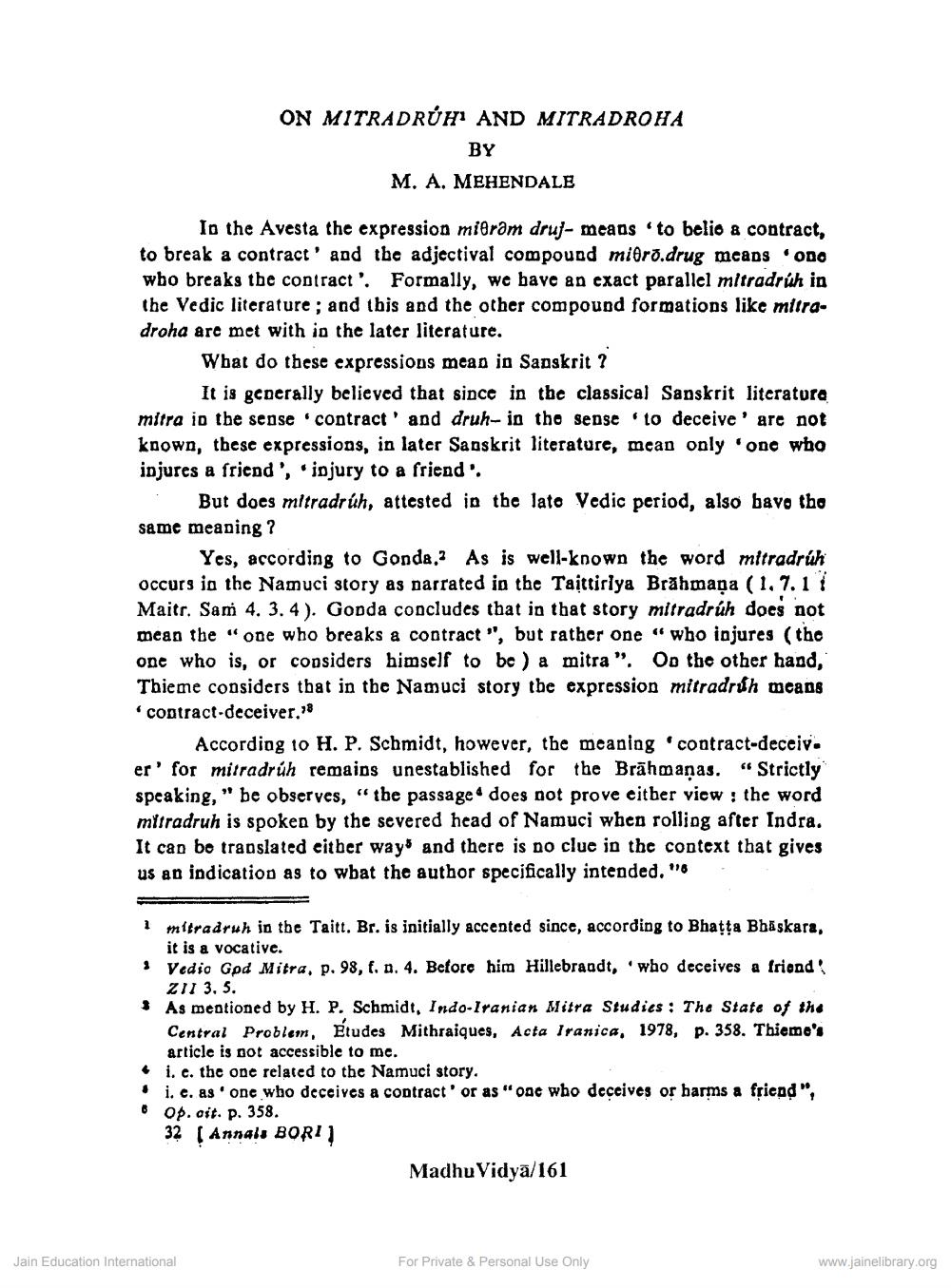________________
ON MITRADRÚH AND MITRADROHA
BY
M. A. MEHENDALE
Io the Avesta the expression miérom druj- means 'to belio & contract, to break a contract' and the adjectival compound mibro.drug means ono wbo breaks the contract'. Formally, we have an exact parallel mitradrúh in the Vedic literature; and this and the other compound formations like mitradroha are met with io the later literature.
Wbat do these expressions mean in Sanskrit ?
It is generally believed that since in the classical Sanskrit literatura mitra in the sense contract and druh- in the sense to deceive' are not known, these expressions, in later Sanskrit literature, mean only one who injures a friend', injury to a friend'.
But does mitradrúh, attested in the late Vedic period, also bave the same meaning ?
Yes, according to Gonda.? As is well-known the word mitradrúh occurs in the Namuci story as narrated in the Taittiriya Brāhmapa (1.7.11 Maitr. Sam 4.3.4). Gooda concludes that in that story mitradrúh does not mean the one who breaks a contract", but rather one " who injures (the one who is, or considers himself to be ) a mitra". On the other hand, Thieme considers that in the Namuci story the expression mitradrüh means contract deceiver.18
According 10 H. P. Schmidt, however, the meaning contract-deceiv. er' for mitradrúh remains unestablished for the Brāhmaṇas. “Strictly speaking, " be observes, “the passage does not prove either view : the word mitradruh is spoken by the severed head of Namuci when rolling after Indra. It can be translated either ways and there is no clue in the context that gives us an indication as to wbat the author specifically intended."
I mitradruh in the Taitt. Br. is initially accented since, according to Bhatta Bhaskara,
it is a vocative. • Vedio Gpd Mitra, p. 98, f. 8. 4. Before him Hillebrandt, who deceives a friend!
ZII 3, 5. As mentioned by H. P. Schmidt, Indo-Iranian Mitra Studies: The State of the Central Problem, Etudes Mithraiques, Acta Iranica, 1978, p. 358. Thieme's article is not accessible to me. i. c. the one related to the Namuci story, i. c. as one who deceives a contract' or as "oac who deceives or harms a friend", Op. ost. p. 358. 3? (Annal. BORI)
Madhu Vidyā/161
Jain Education International
For Private & Personal Use Only
www.jainelibrary.org




